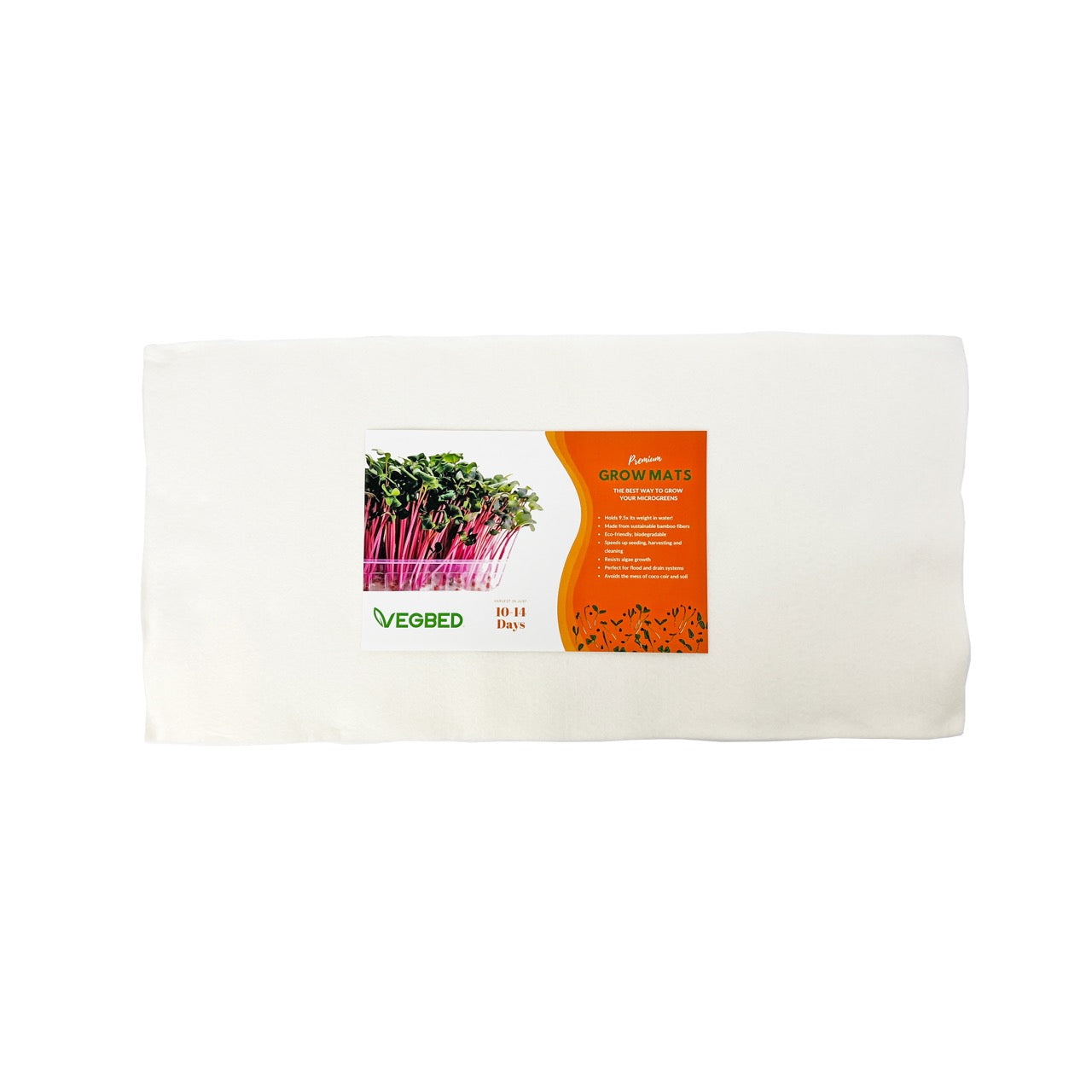In a world obsessed with convenience and wellness, natural supplements have become a go-to for many people seeking to improve their health. From multivitamins to green superfood powders, supplements are marketed as quick fixes packed with nutrition. But are they the best source of nutrients for your body, or the most sustainable?
Enter microgreens.
These tiny, nutrient-dense greens are changing how people think about food as medicine. Whether eaten fresh or as a powder, microgreens offer a powerful, natural alternative to synthetic supplements—and with Vegbed’s clean, sustainable growing methods, they’re better for the environment, too.
This blog will compare natural supplements with fresh and powdered microgreens regarding nutrition, absorption, sustainability, and long-term benefits. You’ll learn why more people choose microgreens over pills—and why small-scale growers are uniquely positioned to capitalize on this shift.
A Quick Look at Natural Supplements
Natural supplements are derived from whole food sources—think dehydrated fruits, vegetables, herbs, and other plants. While marketed as "natural," many still undergo heavy processing to become capsules, tablets, or powders. Popular examples include:
-
Green powders
-
Multivitamin tablets
-
Herbal extracts
-
Protein powders
-
Omega-3 soft gels
These are convenient, but they’re not without downsides:
-
Nutrient degradation during processing
-
Low bioavailability compared to fresh food
-
Additives and fillers in many products
-
Environmental impact from production and packaging
What Makes Microgreens Different?
Microgreens are the young shoots of vegetables and herbs, harvested just 7–14 days after germination. They contain up to 40x more nutrients than their mature counterparts at this stage.
They’re:
-
Fresh and alive at the time of consumption
-
Free of unnecessary processing
-
Easier to grow sustainably at scale
-
Packed with chlorophyll, enzymes, and antioxidants
Even powdered microgreens—when dried properly—retain most of their nutritional profile without the need for synthetic preservation or additives.
Fresh vs. Powdered Microgreens
There’s a growing demand for both fresh and powdered microgreens, and each has its strengths.
|
Feature |
Fresh Microgreens |
Powdered Microgreens |
|
Nutrient Density |
Extremely high |
Slightly reduced due to drying |
|
Shelf Life |
5–7 days refrigerated |
6–12 months sealed |
|
Convenience |
Requires harvesting and prep |
Easy to mix into smoothies or meals |
|
Taste & Texture |
Fresh, crisp, flavorful |
Neutral or earthy taste |
|
Enzymes & Chlorophyll |
Intact and bioavailable |
Reduced through dehydration |
Both are superior to most supplements when it comes to whole-food nutrition and traceability.
Nutritional Comparison: Microgreens vs. Natural Supplements
Here’s how microgreens stack up nutritionally against some common supplements:
|
Nutrient |
Broccoli Microgreens (per 100g) |
Powdered Microgreens (avg) |
Green Superfood Supplement (avg) |
|
Vitamin C |
93 mg |
80–85 mg |
60–75 mg |
|
Vitamin K |
400 µg |
380 µg |
150–250 µg |
|
Iron |
0.7 mg |
0.6 mg |
0.5 mg |
|
Fiber |
2.6 g |
1.5 g |
0.5 g |
|
Enzymes |
High (fresh) |
Moderate |
Often destroyed |
|
Additives |
None |
None (if pure) |
Common (binders, preservatives) |
Note: Nutritional values vary by source and growing conditions. Vegbed microgreens are typically grown using bamboo fiber mats, which ensure clean, inert, and safe growing conditions, free from soil-borne pathogens or contamination.
Absorption and Bioavailability
Here’s where microgreens shine. The body absorbs whole foods' nutrients more efficiently than pills or processed powders.
-
Microgreens deliver nutrients with supporting enzymes and fiber, enhancing digestion and uptake.
-
Natural supplements can have low bioavailability, especially fat-soluble vitamins, when taken without fats.
-
Powdered microgreens retain a more natural food matrix compared to isolated supplement ingredients.
Sustainability: Microgreens Win Again
Vegbed microgreens are grown on 100% biodegradable bamboo fiber mats—no soil, no mess, and no plastic waste.
Now compare that to supplement production:
-
Energy-intensive processing
-
Long supply chains
-
Non-recyclable plastic bottles
-
Waste from packaging and shipping
With microgreens, especially when grown locally or at home:
-
The carbon footprint is minimal
-
Inputs are clean and controlled
-
Trays can be stacked vertically to maximize space
Fresh microgreens are a hyper-local solution to nutrition, made even better with growing systems like Vegbed that prioritize sustainability from root to tray.
Use Cases: Where Microgreens Shine
Whether fresh or powdered, microgreens are incredibly versatile. Here are a few ways people are incorporating them into their daily lives:
Fresh Microgreens
-
Garnish for sandwiches, tacos, or burgers
-
Base for salads
-
Tossed into smoothies
-
Added to omelettes or avocado toast
-
Topping for grain bowls or soups
Powdered Microgreens
-
Blended into green smoothies
-
Mixed into dressings or sauces
-
Added to soups, broths, or dips
-
Stirred into juices or wellness shots
Their flavor profiles vary—from nutty (sunflower microgreens) to peppery (radish) or earthy (beet)—so there’s something for everyone.
For Growers: An Opportunity in Wellness
As the wellness industry shifts toward real food, microgreens are gaining recognition not just as garnish but as functional nutrition.
If you're a small or commercial grower, this is a huge opportunity:
-
Position microgreens as a natural, whole-food supplement
-
Cater to health-conscious consumers who want clean nutrition
-
Offer both fresh and dried options for added convenience
With Vegbed’s bamboo mats, you’re offering a growing system that’s not only clean and safe but proven to reduce contamination risks and meet the highest food safety standards.
Final Thoughts: Ditch the Pills, Grow the Greens
Supplements have their place, but nothing beats real food—especially when it’s grown clean, harvested fresh, and packed with bioavailable nutrients.
Microgreens offer everything modern health seekers want:
✅ Nutrient-rich
✅ Sustainable
✅ Fresh or shelf-stable
✅ Versatile in the kitchen
So the next time you reach for a bottle of capsules, ask yourself: wouldn’t you rather grow something better?
🌱 Grow your health. Grow your business. Grow with Vegbed.



